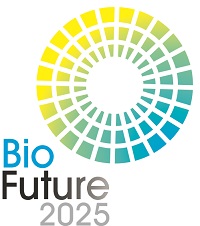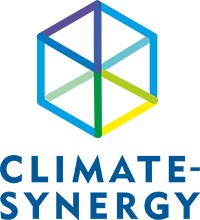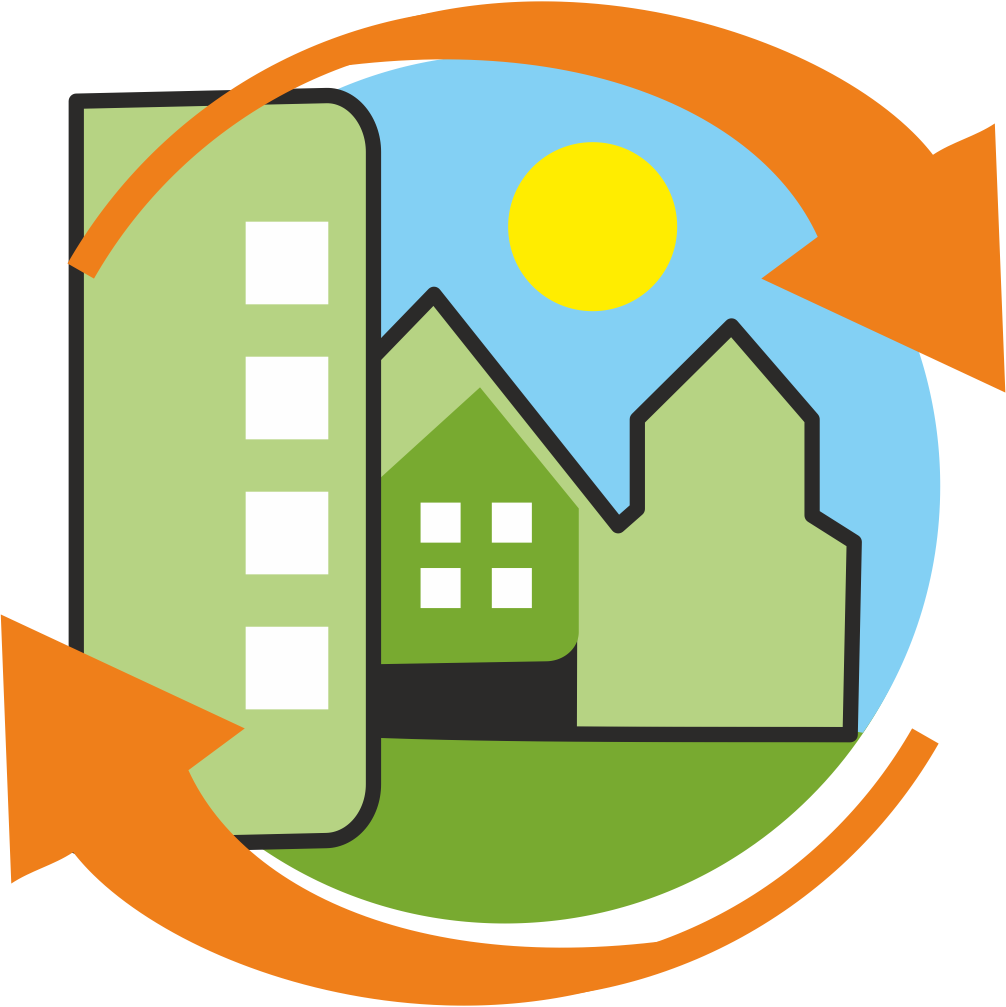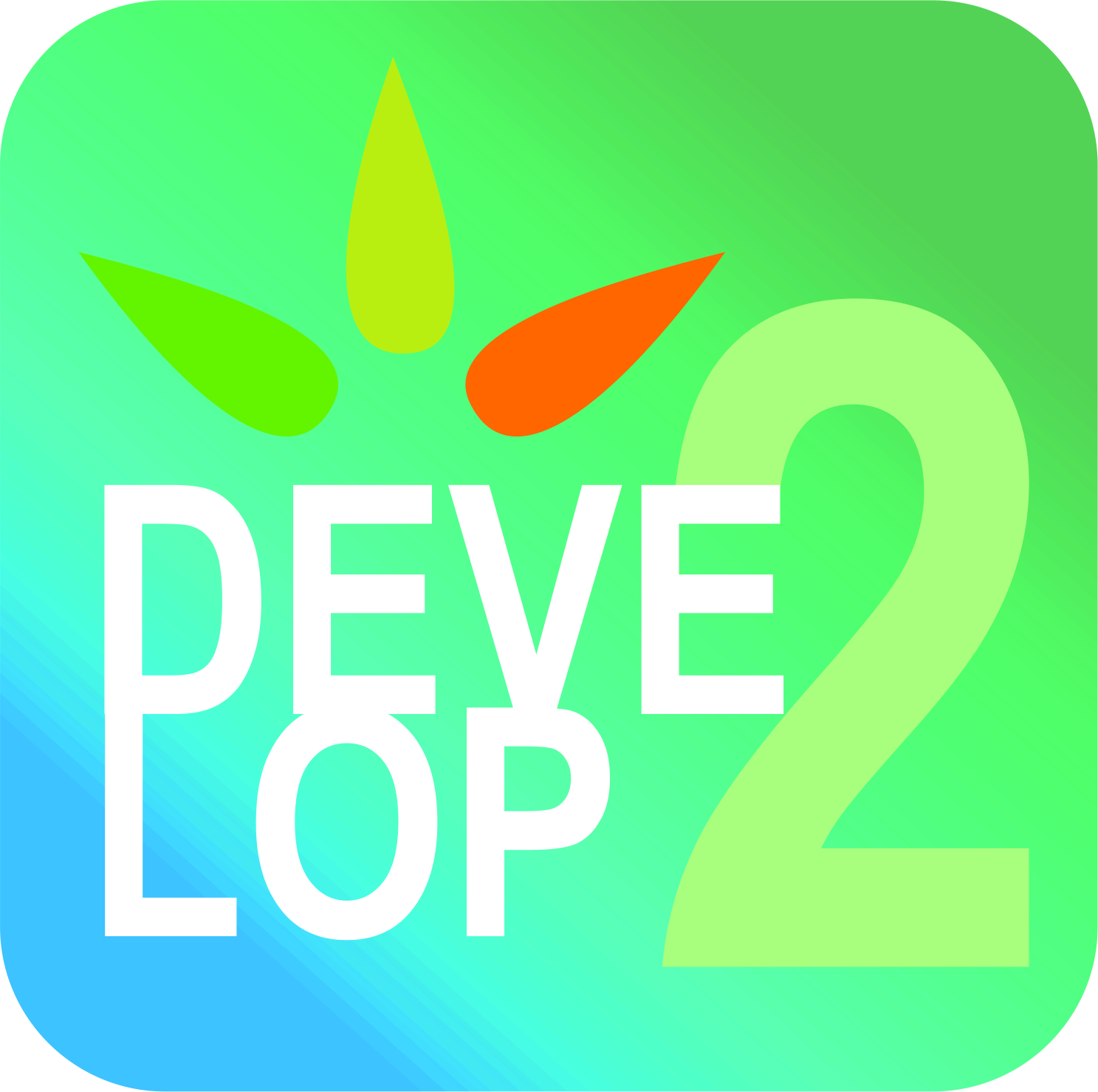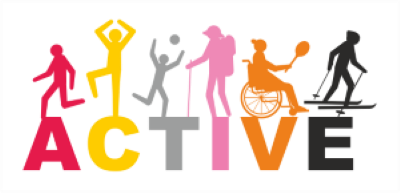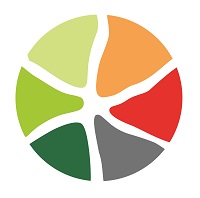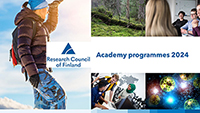Academy Programmes are thematic, target-oriented and coordinated research programmes that cover a range of activities to support innovative, high-quality and high-impact research and promote international and national research cooperation.
Academy Programmes may have different focuses:
- advancing emerging fields of research
- supporting research related to societal challenges
- promoting national and international funding cooperation
- supporting Finnish researchers in seeking international collaborations and funding opportunities
- influencing the contents of international funding calls, for example.
The topics of Academy Programmes are often science-driven and may emerge from key research needs in society identified through foresighting.
The Board of the Research Council of Finland decides on the start-up and financial resources of new Academy Programmes. The funding is granted for a minimum of four years. There are six Academy Programmes running in 2024.
BioFuture2025 seeks innovative ideas and novel ways to do research that opens up new avenues for advances in the field of bioeconomy. The aim is to move towards a biobased economy that will help curb climate change and the overexploitation of...
The Academy Programme for Climate Change and Carbon Neutrality Research (Climate-Synergy) examines the impacts of climate change both in the environment and in society and seeks solutions to promote a carbon-neutral future. The programme pools...
Romulus explores the occurrence and chemical composition and properties of critical metals, integrating this with research on the circular economy of cities. The programme examines processes, products and services that are based on sustainable...
Welcome to the DEVELOP2 Roundtable event on the 11th of December 2024. Please find more information and the registration link on the event website.
DEVELOP2, the Academy Programme for Development Research, is a research programme jointly funded by...
The Academy Programme for sport science and physical activity ACTIVE advances the quality, renewal, and impact of research in sport science. The programme generates new knowledge to promote physical activity by directing funding to high-quality,...
The aim of the Academy Programme Pandemics and Other Crises – Responses and Preparedness (RESILIENCE) is to support and accelerate research into the COVID-19 pandemic and other societal crises and to support the utilisation of that research in...
- Ageing (2000–2002)
- Arctic Academy Programme, ARKTIKO (2014-2020)
- Baltic Sea Research Programme, BIREME (2003–2005)
- Biodiversity, FIBRE (1997–2002)
- Biological Functions, Life 2000 (2000–2003)
- Business Know-how, LIIKE2 (2006–2009)
- Climate Change, FICCA (2011–2014)
- Computational Science, LASTU (2010–2016)
- Economic Crisis of the 1990s: Reasons, Events and Consequences (1998–2001)
- Ecological Construction, EKORA (1995–1999)
- Economic Adaptation in Rural Areas (1994–1998)
- Electronic Materials and Microsystems, EMMA (1999–2002)
- Environment and Law, ENVLAW (2005–2008)
- Environmental, Societal and Health Effects of Genetically Modified Organisms, ESGEMO (2004–2007)
- Finnish Companies and the Challenges of Globalization, LIIKE (2001–2004)
- Finnish Expertise in Mathematics and the Natural Sciences in 2002, MALU 2002 (1998–2000)
- Finnish Forest Cluster Research Programme, WOOD WISDOM (1998-2001)
- Finnish Global Change Research Programme, FIGARE (1999–2002)
- Finnish Research Programme on Climate Change, SILMU (1990-1996)
- Finnish Research Programme on Environmental Health, SYTTY (1998–2001)
- Forest Land Biology (1994–1997)
- Future Electronics, TULE (2004–2006)
- Future Mechanical Engineering, TUKEVA (2000–2003)
- Future of Learning, Knowledge and Skills, TULOS (2014-2020)
- Future of Living and Housing, ASU-LIVE (2011–2015)
- Future of Work and Well-being, WORK (2008–2011)
- Genome Research Programme, GEENI (1994–2000)
- Health and Other Welfare Differences between Population Groups, TERO (1998–2000)
- Health and Welfare of Children and Young People, SKIDI-KIDS (2010–2015)
- Health from Cohorts and Biobanks, COHORT (2017-2020)
- Health Promotion Research Programme, TERVE (2001–2004)
- Health Service Research, TERTTU (2004–2007)
- Human Mind, MIND (2013–2016)
- Impact of Education (1994–1998)
- Industrial Design (2004–2007)
- Information Research Programme (1997-2001)
- Information Technology in Mechanical and Automation Engineering, KITARA (2005–2009)
- Interaction across the Gulf of Bothnia (2000–2003)
- Life as Learning Research Programme, LEARN (2002–2006)
- Marginalisation, Inequality and Ethnic Relation in Finland, SYREENI (2000–2003)
- Materials Research and Structures Research, MATRA (1994–2000)
- Mathematical Methods and Modelling in the Sciences, MaDaMe (2000–2003)
- Media Culture Research Programme, MEDIA (1999–2002)
- Microbes and Man Research Programme, MICMAN (2003–2005)
- Mineral Resources and Material Substitution, MISU (2014-2021)
- Molecular Epidemiology and Molecular Evolution (1997–1999)
- Nanoscience, FinNano (2006–2010)
- New Energy Academy Programme (2015-2020)
- Novel Applications of Artificial Intelligence in Physical Sciences and Engineering, AIPSE (2018-2021)
- Nutrition, Food and Health, ELVIRA (2007–2014)
- Research Programme on Neuroscience, NEURO (2005–2009)
- Photonics and Modern Imaging Techniques (2010–2013)
- Power in Finland, VALTA (2007–2010)
- Proactive Computing Research Programme, PROACT (2002–2005)
- Process Technology, PROTEK (1999–2002)
- Programmable Materials, OMA (2012–2016)
- Reproduction and Cultivation of Fish (1994–1998)
- Radiation Detectors for Health, Safety and Security, RADDESS (2018–2022)
- Research Programme for Cell Biology, SOLU (1998–2001)
- Responding to Public Health Challenges, SALVE (2009–2012)
- Restoration of Boreal Environments, RESTORE 2000
- Russia and Eastern Europe (1995–2000)
- Russia in Flux, RUSSIA (2004–2007)
- Space Research Programme, ANTARES (2001–2004)
- Social Capital and Networks of Trust, SOCA (2004–2007)
- Structural Biology, RAKBIO (2000–2002)
- Sustainable energy SusEn (2008–2012)
- Sustainable Governance of Aquatic Resources, AKVA (2012–2016)
- Sustainable Production and Products KETJU (2006–2013)
- Sustainable Use of Natural Resources, SUNARE (2001–2004)
- Studies on Science and Science Policy (1997–1999)
- Substance Use and Addictions, ADDIKTIO (2007–2010)
- Synthetic Biology, FinSynBio (2013–2019)
- Systems Biology and Bioinformatics, SYSBIO (2004–2007)
- Telecommunication Electronics, Telectronics (1998–2003)
- Ubiquitous Computing and Diversity of Communication, MOTIVE (2009–2012)
- Urban Studies (1998–2001)
- Wood Material Science (2003–2006)
